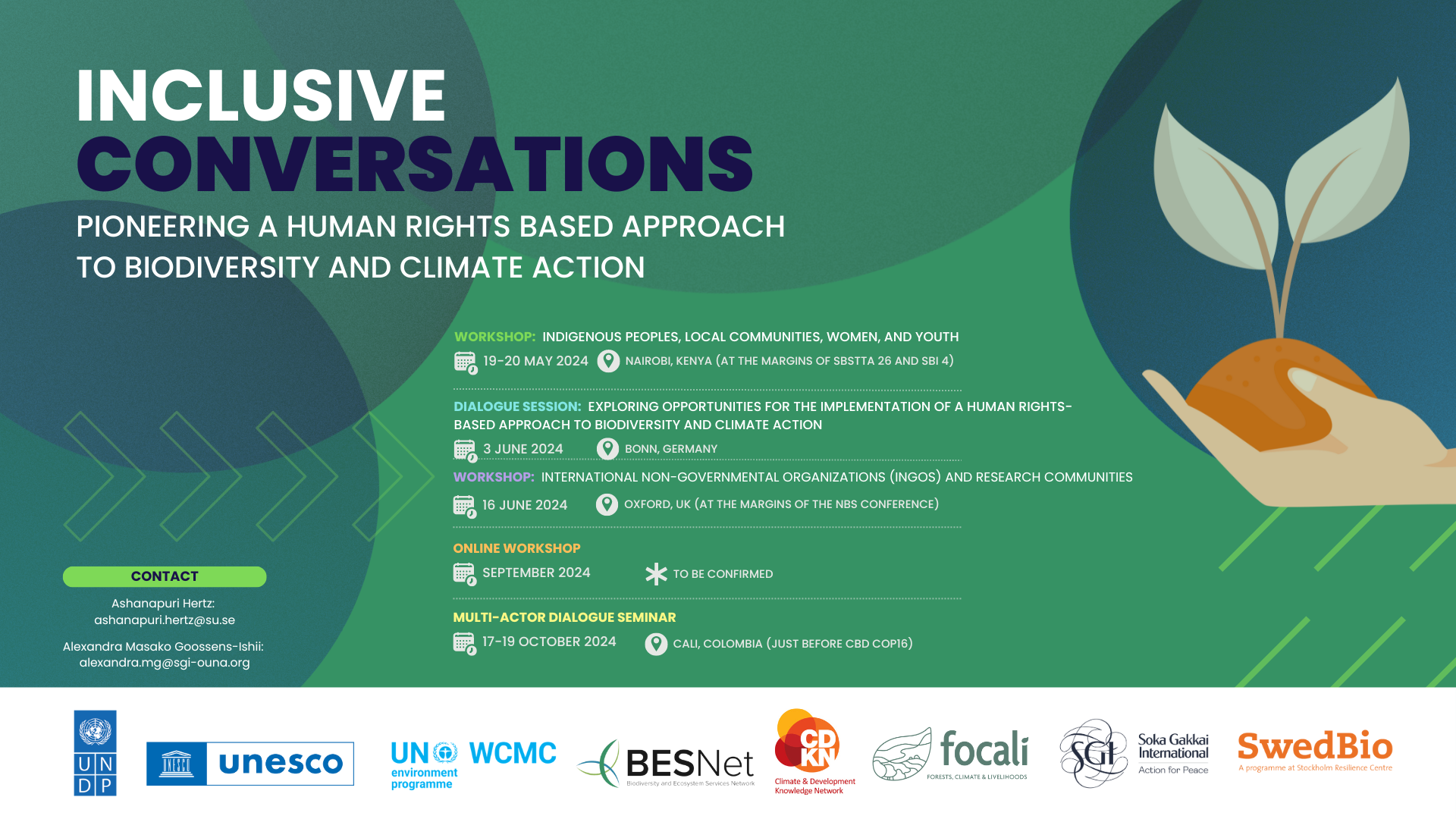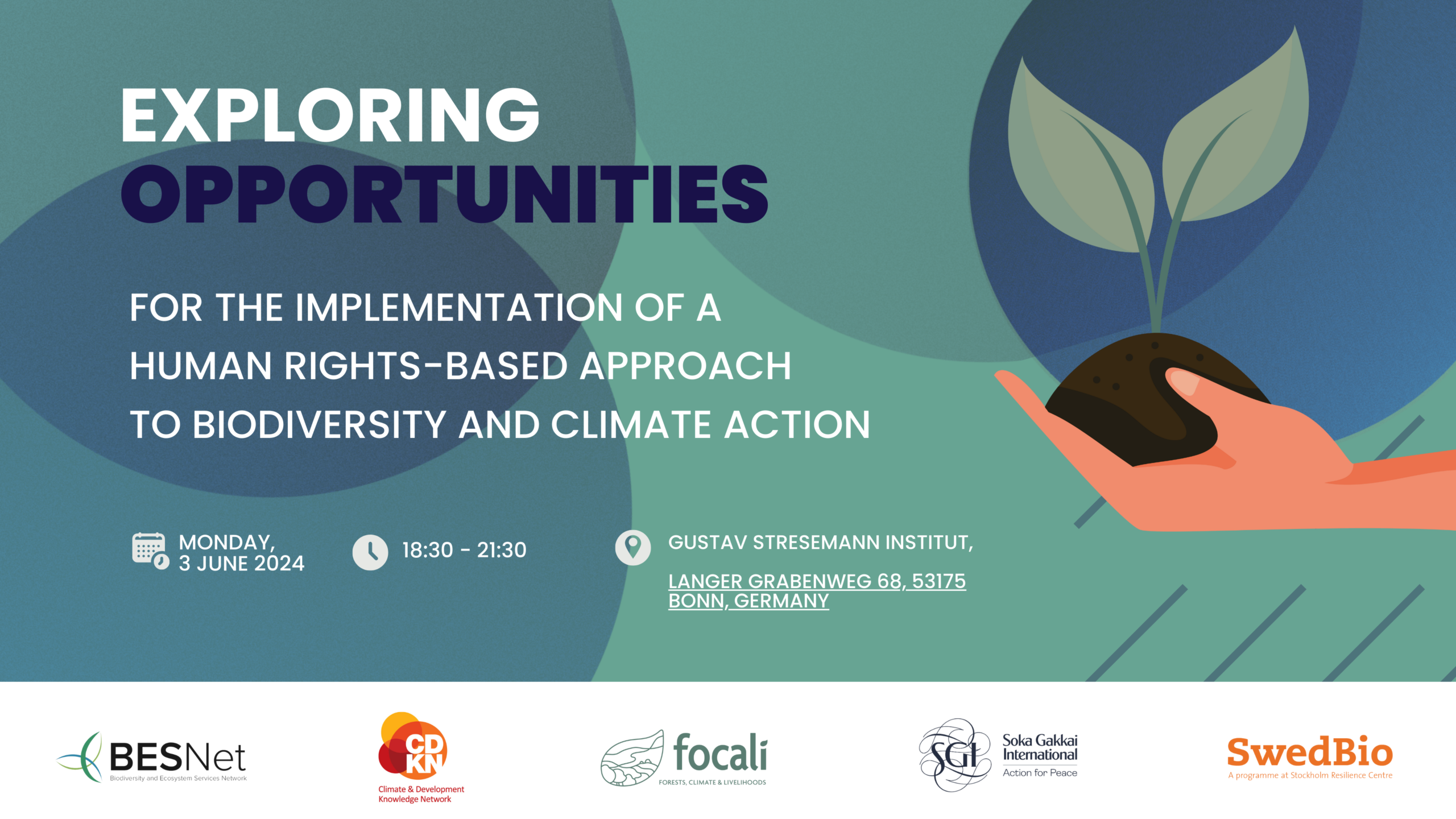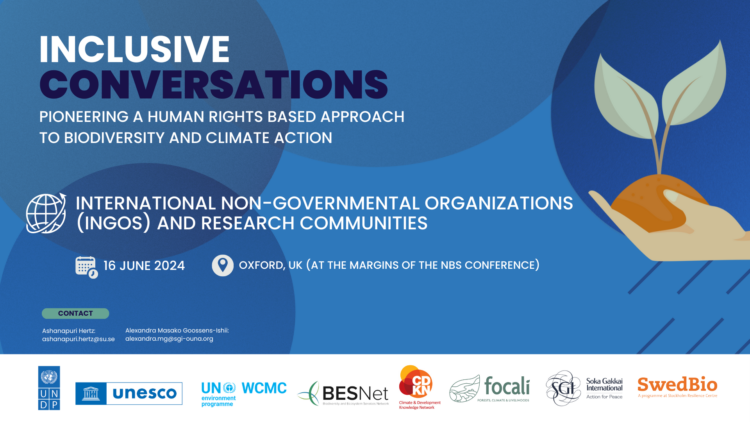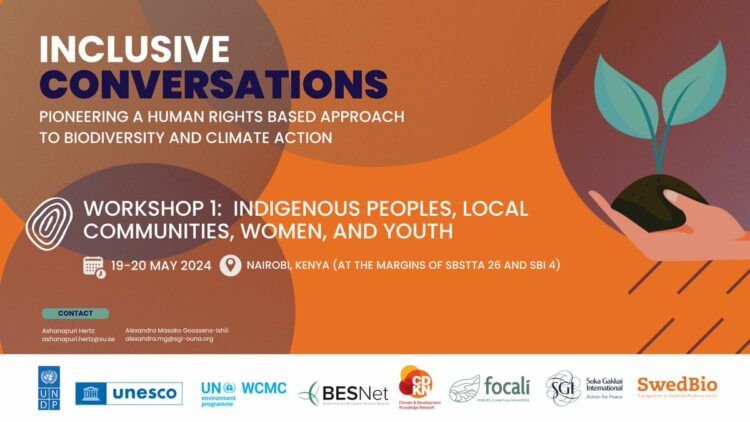 Story highlights
Story highlights
- The overarching goal of this dialogue process is to advance the understanding and strengthen the capacity of various actors, both duty bearers and rights holders, in implementing an HRBA for biodiversity and climate action.
- For the dialogue process, we are following a set of HRBA focused methods such as the Multi Evidence Base approach (MEB), and we will apply the Chatham House Rule emphasizing democratic participation, non-discrimination, transparency, accountability, and equitable gender and regional representation.
- The workshops, as parts of the pre-dialogue process, will be held with stakeholder groups spanning duty bearers and rights holders, whereas the multi-actor dialogue seminar will be attended by representatives of participants from a mix of actors taking part in the previous workshops.
We are excited to inform our partners and wider network about an ongoing dialogue process focused on integrating a human rights-based approach (HRBA) into the core of biodiversity and climate action. Despite existing international frameworks, there is still a gap in understanding how HRBA applies to these critical areas.
In collaboration with our partners such as UNDP, UNEP-WCMC, UNESCO, SwedBio, SGI, CDKN, and Focali, we are guiding a series of workshops and a multi-actor dialogue seminar. These initiatives seek to enhance understanding and capacity-building around HRBA implementation in biodiversity and climate action, aligning with the Kunming-Montreal Global Biodiversity Framework also known as The Biodiversity Plan as well as other international agreements. This initiative is also supported by the Office of the United Nations High Commissioner for Human Rights (OHCHR) and the Secretariat of the Convention on Biological Diversity (SCBD).For the dialogue process, we are following a set of HRBA focused methods such as the Multi Evidence Base approach (MEB), and we will apply the Chatham House Rule emphasizing democratic participation, non-discrimination, transparency, accountability, and equitable gender and regional representation. A collectively drafted participant list was created taking these principles into account.
The functioning of human societies and ecosystems is interdependent with the state of climate and biodiversity. The Paris Agreement and the Kunming-Montreal Global Biodiversity Framework (KMGBF) recognize the importance of respecting, protecting and fulfilling human rights. The latter especially states that its implementation requires a Human Rights-Based Approach (HRBA). An HRBA ensures that policies, governance and actions actively seek ways to support and promote human rights in their design, implementation, monitoring, evaluation and learning. It recognizes that actions, policies and projects have different impacts on people and seeks to consider these impacts, addressing their root causes to ensure the effective enjoyment of human rights for all. Adopting an HRBA for biodiversity and climate action involves identifying power dynamics, inequalities and discrimination, as well as providing transparency and strong accountability through monitoring, evaluation and reporting.
Recognizing the diversity of actors, as well as their associated knowledge, views, experience and proposals, in addressing biodiversity and climate change in a synergistic manner, there is a need for actors to come closer to convergence on what an HRBA applied to biodiversity and climate action means.
The overarching goal of this dialogue process is to advance the understanding and strengthen the capacity of various actors, both duty bearers and rights holders, in implementing an HRBA for biodiversity and climate action. This will contribute to the implementation of the KMGBF across all levels and other international frameworks related to biodiversity and climate change.
This dialogue process comprises a series of three workshops followed by a multi-actor dialogue seminar, that aims to advance efforts in addressing gaps between internationally agreed framework and implementation at the national and sub-national levels.
The workshops, as parts of the pre-dialogue process, will be held with stakeholder groups spanning duty bearers and rights holders, whereas the multi-actor dialogue seminar will be attended by representatives of participants from a mix of actors taking part in the previous workshops.
As part of a dialogue process, three preparatory workshops will be conducted with diverse stakeholder groups. Each workshop will be held with different configurations of actors, taking into account asymmetric power issues that can arise from diverse knowledge systems.

Upcoming events:
Dinner conversation (Session 2): As part of a continuous dialogue process, this dinner conversation amongst state actors aims at sharing best practices, identifying common challenges and opportunities around HRBA and exploring how best to integrate globally recognised human rights principles into national and international biodiversity and climate policies.

Session 3 (workshop): International Non-Governmental Organizations and Research Communities will bring together the research community and international non-governmental organizations to delve into the integration of scientific research and advocacy in advancing a Human Rights-Based Approach (HRBA) to biodiversity and climate action.
This workshop aims to bridge the gap between academic research and practical implementation, ensuring that scientific insights and evidence-based strategies inform policy and action plans.

Past events:
As part of the dialogue process – comprised of a series of three workshops – Workshop 1: Indigenous Peoples, Local Communities, Women and Youth will focus on empowering Indigenous Peoples, local communities, women and youth. It aimed to incorporate their unique perspectives and knowledge into biodiversity and climate action strategies, ensuring that these groups have a voice in the dialogue.

For more information please contact:
- Ashanapuri Hertz ashanapuri.hertz@su.se +46 76 795 62 82
- Alexandra Goossens-Ishii alexandra.mg@sgi-ouna.org +41 79 851 24 26

 Ashanapuri Hertz
Ashanapuri Hertz Celina Thaller de Zárate
Celina Thaller de Zárate